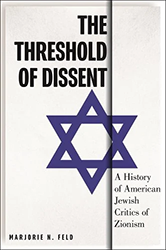That tiresome old line “some of my best friends are Jewish,” would be an apt subtitle for Zev Chafetz’s new book, in which he warns liberal American Jews to guard against being suspicious of evangelical support “based on stereotypes, kneejerk partisanship, or simple prejudice.” He suggests that American Jewry take a closer look at Christian Zionism, especially in a time of Muslim terrorism and war.
Skeptics and critics abound. How can evangelicals be trusted when it is a tenet of their faith that accepting Jesus as a savior is necessary for redemption? Chafetz urges us, in his own tongue-in-cheek and irreverent style, to accept as fact that most Christians have come to acknowledge that G‑d’s they believe their own covenant is. This is referred to in the evangelical vernacular as the “dual covenant” theology. With this belief, there is no reason to convert Jews to Christianity and therefore no “danger” exists to Jews from evangelicals.
The book is divided into chapters, which deal with historical issues of the Jewishevangelical relations to the current state of that relationship. Chafetz entertains us with anecdotes from his own experiences ranging from his participation in an evangelical pilgrimage to Israel to interviews with the patriarchs of evangelism, Jerry Falwell and Pat Robertson. Taking occasional potshots at the religious authorities in Israel for their stance (or monopoly) on conversions as well as contemptuous barbs aimed at what he perceives as the liberal American Jewish agenda, Chafetz is eager to have us believe that “it is a long established relationship between the leaders of evangelical American Christianity and mainstream Israel. Every prime minister since Begin has relied on the support of the Christian right.”
In formulating an answer to the title of part two of the book, “Is it good for the Jews?” one is tempted to answer with another question, “How can it be bad?”





